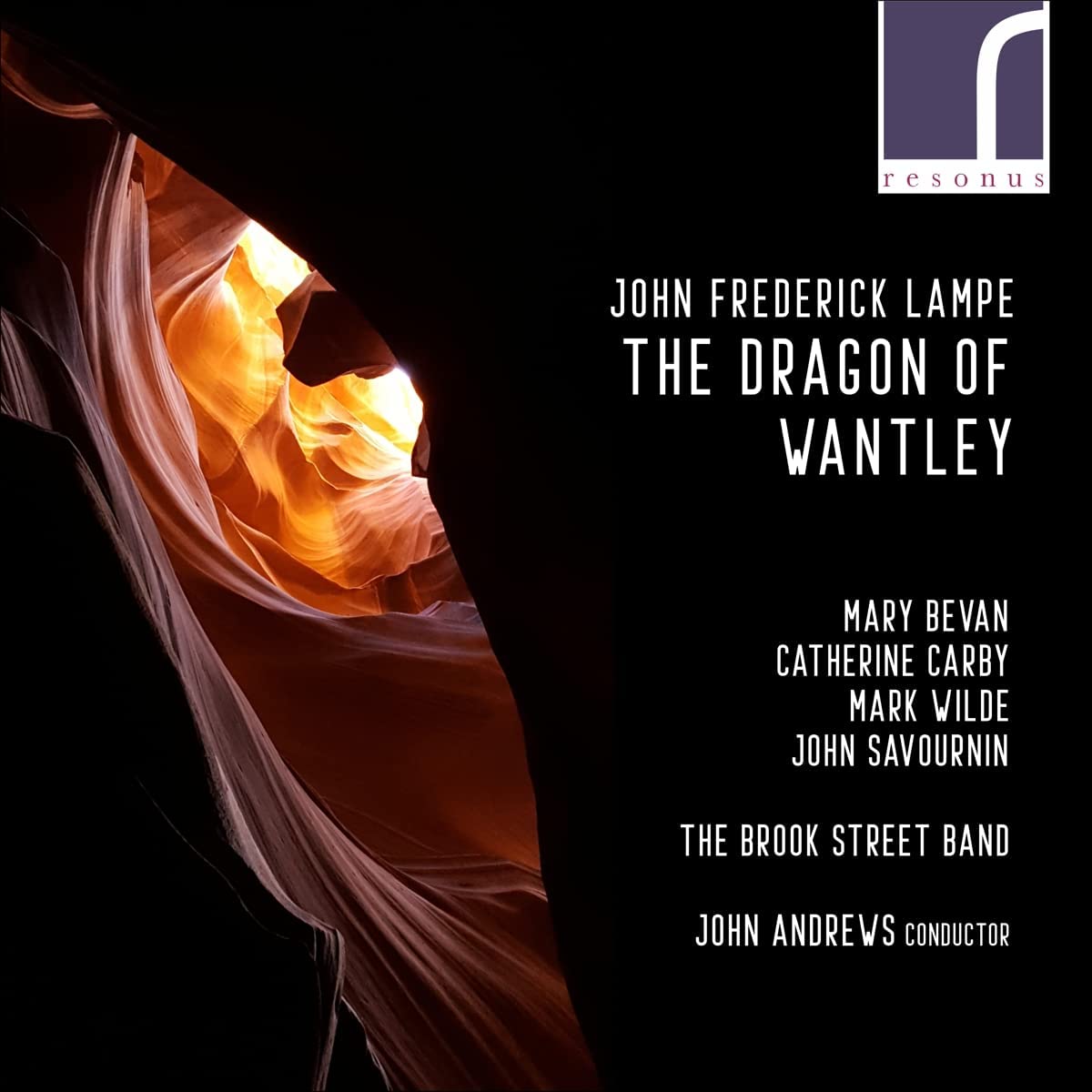Mary Bevan, Catherine Carby, Mark Wilde, John Savournin, The Brook Street Band, John Andrews
107:56 (2 CDs in a single jewel case)
resonus RES10304
The Dragon of Wantley by the German-born John Frederick Lampe and his regular librettist Henry Carey was one of the most successful English stage works of the 18th century. A burlesque opera offered to Drury Lane, it was refused and waited a further two years until its premiere at the Little Theatre in 1737. The rejection transpired to be a bloomer comparable with Decca’s rejection of the Beatles; The Dragon was the sensation of the season, later being taken over by John Rich at Covent Garden, where in its first season it received no fewer than 59 performances, more than had been achieved by The Beggar’s Opera nine years earlier. The libretto was reprinted endlessly, the opera taken up by other companies and holding the stage until 1782.
The reason for The Dragon’s success is not hard to understand. A full-scale three-act opera, it broadly follows the design of opera seria. Unlike most English stage works, there is no dialogue, only recitative. The secret of the work’s appeal to English audiences is that it is a clever and merciless parody of Italian oratorio and opera, debate over the latter remaining a contentious issue in England throughout the century. While Lampe, who earlier had himself composed three serious operas, composed music that is skilful, attractive and often touching, Carey’s libretto persistently undermines any element of seriousness by being absurd, cleverly creating a near-constant conflict between words and music. There’s a wonderful example at the start of act 2, where the heroine Margery sings a long aria in the voguish sentimental style regretting she has asked her lover, the foppish Moore of Moore Hall, to kill the dragon that has been terrorising the neighbourhood. Set in a nocturnal garden it opens with an exquisite moon-kissed orchestral introduction. But any magic is immediately dissipated by the opening words, ‘Sure my Stays will burst with sobbing, And my Heart quite crack with throbbing’. So we have the full parody treatment: an aria di furia complete with Handelian chromaticism for Margery’s rival Mauxalinda; a furious duet between the rival women that early audiences will have associated with the warring between Handel’s singers Faustina and Bordoni; a mock Battle Sinfonia replete with trumpets, horns and timpani – Moore kills the dragon with a kick up the backside – and a grand oratorio final chorus, in which repeated ‘Huzzas’ stand in for the customary ‘Hallelujahs’.
While far from perfect, this first performance of the complete opera is enjoyable, not least for playing the piece relatively straight and without guying it. Therein, however, is also a problem, for although John Andrews’s direction is idiomatically assured and the playing of The Brook Street Band neat and tidy, it is possible to imagine the work benefitting from a more spirited, lively performance. This impression is underlined by tempos that tend to the pedestrian and rhythms that are not infrequently four-square and lacking ‘lift’. It is also a pity that the recording emphasises the ecclesiastical acoustic of St-Jude-on-the-Hill, Hampstead, a less appropriate sound for a bawdy opera being hard to imagine. This affects the singers, too, in particular Mary Bevan’s Margery, whose largely excellent performance is spoiled by the voice spreading in the upper range. None of the other singers have much in the way of early music credentials and it shows in the level of continuous vibrato on display, particularly in the case of the Mauxalinda. Ornamentation is applied haphazardly and with variable success, that of Bevan being superior to her colleagues. Bass John Savournin is fine in the brief role of Gubbins and an even briefer appearance as the Dragon who devours, ‘Houses and Churches, to him Geese and Turkies’, but tenor Mark Wilde’s Moore has intonation problems in passage work, though he brings more character to the recitative than is in evidence elsewhere.
As I suggested earlier, Lampe’s fine work is enjoyably enough presented, though it would be good to hear it given a more vocally stylish performance. More careful proofreading of Andrews’s notes might have avoided reference to Handel’s Giustnino (for which read Giustino).
Brian Robins
